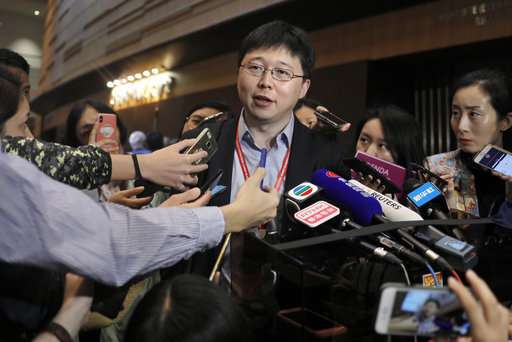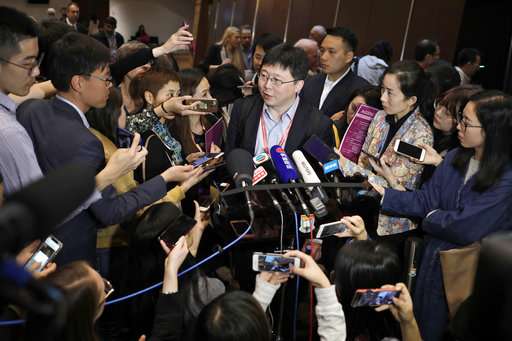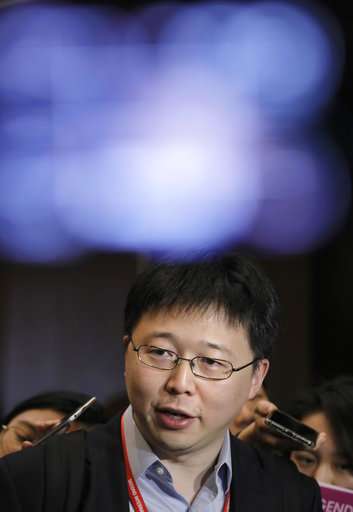US biologist: Gene-editing work a failure of self-regulation

A leader of an international conference on gene editing said Wednesday that the work of a Chinese scientist who claims to have helped make the world's first gene-edited babies showed a failure of self-regulation among scientists.
Nobel laureate David Baltimore said the work of the scientist who made the claim would "be considered irresponsible" because it did not meet criteria many scientists agreed on several years ago before gene editing could be considered.
Baltimore spoke at an international conference in Hong Kong, where the Chinese scientist, He Jiankui (HEH JEE-ahn-qway) of Shenzhen, made his first public comments since his work was revealed.
He said the twin girls were born this month. He said they were conceived to try to help them resist possible future infection with the AIDS virus.
Baltimore said he didn't think that was medically necessary. He said the case showed "there has been a failure of self-regulation by the scientific community" and said the conference committee would meet and issue a statement on Thursday about the future of the field.
Another prominent American scientist speaking at the conference, Harvard Medical School dean Dr. George Daley, warned against a backlash to He's claim. Daley said it would be unfortunate if a misstep with a first case led scientists and regulators to reject the good that could come from altering DNA to treat or prevent diseases.

He has said his lab used the powerful gene-editing tool CRISPR to alter the DNA of human embryos.
There is not yet independent confirmation of his claim, but scientists and regulators have been swift to condemn the experiment as unethical and unscientific.
The National Health Commission has ordered local officials in Guangdong province to investigate He's actions, and his employer, Southern University of Science and Technology, is investigating as well.

The Chinese researcher said he practiced editing mice, monkey and human embryos in the lab for several years and has applied for patents on his methods.
He said he chose embryo gene editing for HIV because these infections are a big problem in China. He sought to disable a gene called CCR5 that forms a protein doorway that allows HIV, the virus that causes AIDS, to enter a cell.
© 2018 The Associated Press. All rights reserved.





















